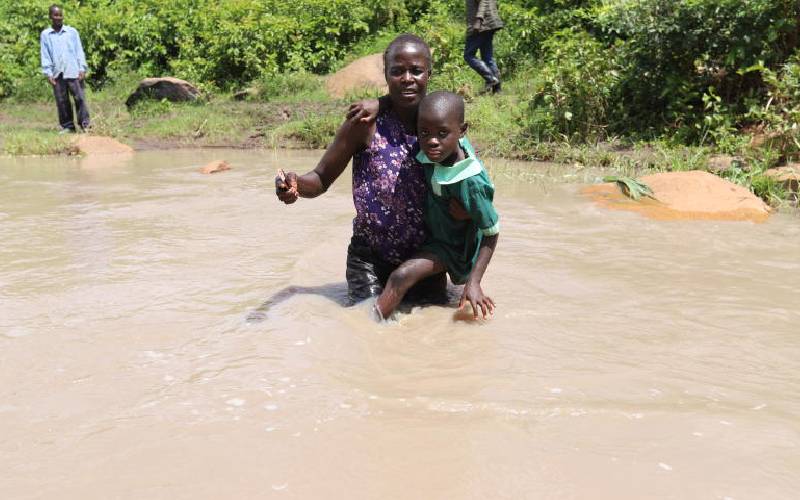×
The Standard e-Paper
Home To Bold Columnists

A woman carries her daughter across river Makindu in Muhoroni. [Denish Ochieng, Standard]
It is 12:40pm and a group of young school children are standing at the banks of the fast-flowing river Makindu waiting fearfully to wade through the dangerous river.